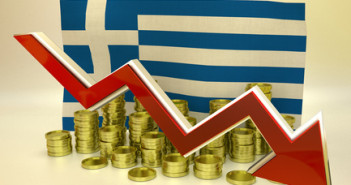A full month has passed since Greece and its European partners reached an agreement about a 4 month extension to its loans. Since then, Greece submitted a general list of reforms and negotiations continue.
In the latest EU Economic Summit, Greece has been a significant issue, with top level meeting and denials about a Grexit from everybody. This is far from being our base case scenario, but the as time passes by, Greece’s coffers are running dry. In addition, there are other reasons for speculation.
- More Merkel urgency: The German chancellor said that the “Greek measures must be accelerated” and that everything must proceed quickly. This top level sense of urgency is new. She also said that the Greek government will take responsibility over actions. The powerful leader is usually very careful with her words.
- Unilateral steps by Greece: The government in Athens committed not to take any unilateral steps in the interim period, but life goes on. PM Tsipras and finance minister Varoufakis introduced a “humanitarian bill” to help the worst hit. They claimed it was not a unilateral step, but some European partners disagree.
- Patience running out in Europe: There are reports that the government in the Hellenic Republic is not cooperating with the ECB, the European Commission and the IMF. These were formerly known as the “troika” and are now just called “the institutions”. The lack of cooperation appears at the technical level and this triggers a lack of trust at the political level. For example, the Slovak finance minister said that he isn’t convinced that the Greek government is playing with open cards.
- Elections in Andalusia: Spain’s largest region is going to the polls in regional elections, which kick off a long series of regional and local elections, culminating in general elections in November. Why is this important? In Spain, as in Greece, an anti-austerity party has gained traction. Pablo Iglesias, the leader of Podemos (“we can” in Spanish) is best friends with Greek PM Alexis Tsipras. The southern region, known for flamenco music and bull fighting (among other things) is unfortunately also hard hit by unemployment and the anti-austerity movement has gained traction there. While Greece is a small country that is now “ring-fenced”, Spain certainly isn’t. Will Greece be sacrificed to deter Spaniards from following the same path?
- This time two years ago: On a weekend in mid March 2013, holders of Cypriot bank accounts discovered that they were participating in a “bail in” – their money was not safe and the euro tumbled. While the conditions have improved for the bailout in Cyprus, this anniversary is a reminder that such moves cannot be ruled out on the weekend in Greece. Capital controls of some sort are still in place in the island nation.
As aforementioned, a Greek exit of the euro-zone is quite unlikely, because everybody can lose from this. An unprecedented reverse of the common currency can be followed up by more events. Germany needs weaker countries in order to have a weaker currency and competitive exports.
Nevertheless, if such an event happens, it would likely occur on a weekend, allowing for everybody to get their acts together before markets open.
What do you think?
More:
- Despite Volatility, EUR/USD Shorts Still Attractive– Goldman Sachs
- USD Bull Run: Is This The Beginning Of The End? – HSBC
